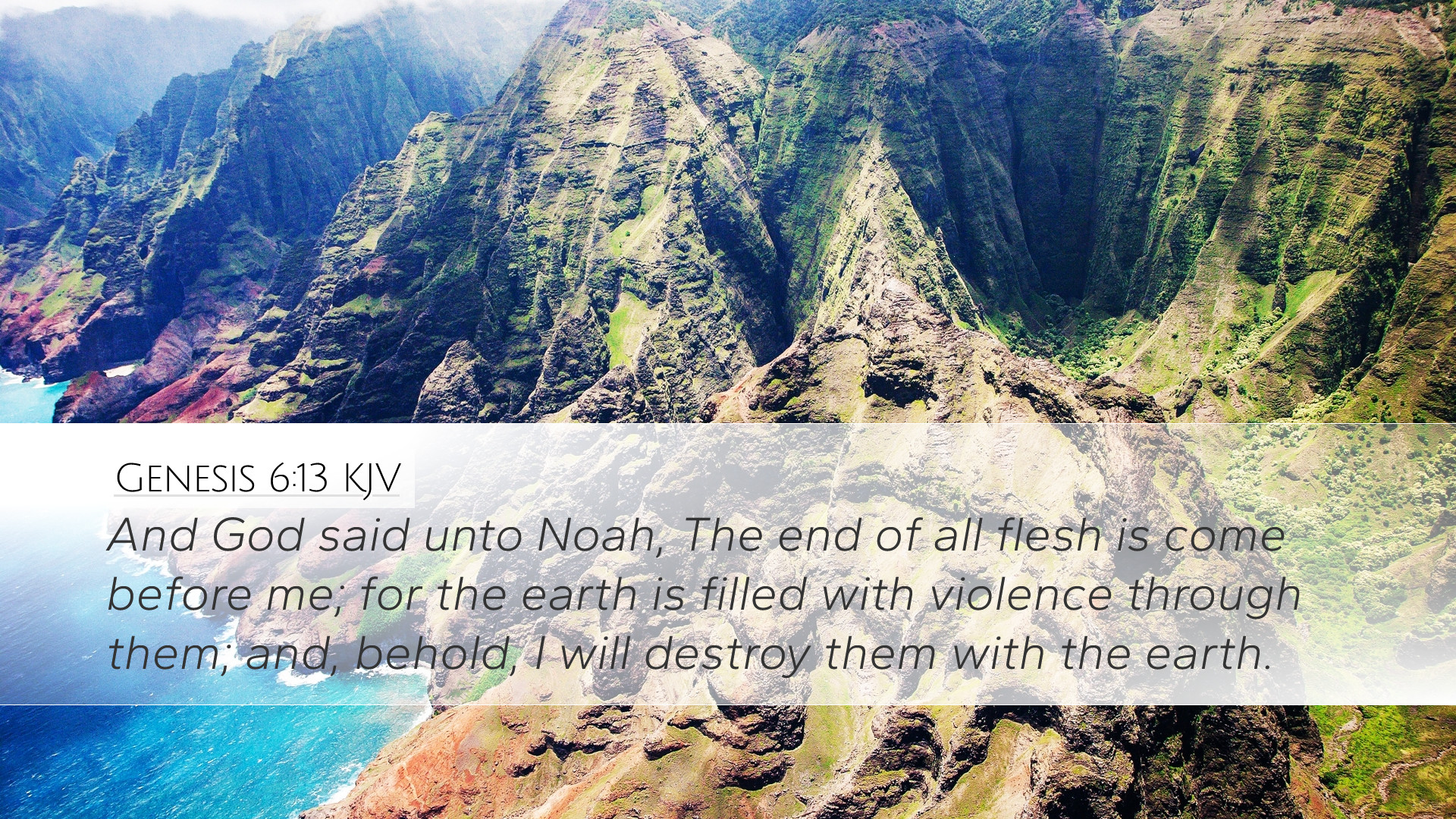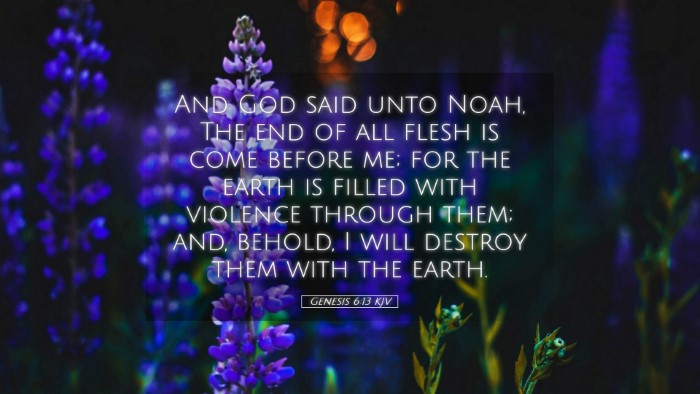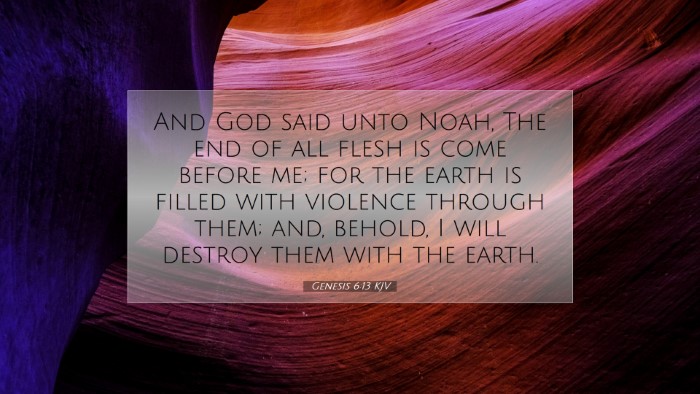Commentary on Genesis 6:13
Genesis 6:13: "And God said unto Noah, The end of all flesh is come before me; for the earth is filled with violence through them; and behold, I will destroy them with the earth."
Introduction
This verse marks a pivotal point in the narrative of Noah and the impending Flood, highlighting God's reaction to the pervasive wickedness on earth. Here, the Lord reveals His judgment, expressing both the depth of human depravity and the seriousness of divine response. Various biblical commentators provide insights into the theological and moral implications of this moment.
The Context of Judgment
Matthew Henry emphasizes that God's declaration to Noah comes as a response to the corruption He observed in humanity. Henry notes that God's patience has reached its limit, as "the earth is filled with violence through them." This phrase encapsulates the moral decay prevalent at the time, where lawlessness reigned.
Similarly, Albert Barnes draws attention to the significance of God communicating with Noah. Barnes suggests that this direct revelation signifies Noah's special role as a faithful servant amidst widespread iniquity. The phrase "the end of all flesh" indicates a divine reset, portraying God's absolute authority over creation.
The Nature of Divine Judgment
Adam Clarke provides a deeper understanding of "the end of all flesh" not merely as an eradication of life but as a necessary act of preservation for righteous humanity and the purity of future generations. Clarke elaborates on the anthropocentric implications of such divine judgment, which serves to illustrate wider biblical themes of sin, judgment, and grace.
Violence and Corruption
The mention of violence is particularly noteworthy. Matthew Henry highlights the corrupted nature of mankind, where violence becomes a defining characteristic of society, suggesting that such behavior provokes divine wrath. In his view, the systemic violence reveals both a breakdown of social order and a breach of covenantal relationships among humanity.
Albert Barnes notes the dual meaning of "violence," acknowledging that it can refer to both personal violence towards others and a broader societal collapse. Barnes interprets the term as indicative of spiritual decay and social injustice. This perspective is essential in understanding the moral landscape prior to the Flood, as it calls into question the ethical foundations of humanity.
Theological Implications
The theological implications of God’s proclamation to Noah are significant. Adam Clarke argues that this moment serves as a warning of divine judgment, emphasizing God’s holiness and intolerance of sin. Clarke posits that such judgment is not only punitive but also redemptive, aiming to preserve the remnant of the righteous.
Matthew Henry also notes that God's communication of judgment to Noah is a testament to the Lord’s justice and mercy, as it provides Noah with the foreknowledge necessary to prepare for the Flood. By revealing His plans, God offers a window of grace, allowing for the preservation of life through Noah's obedience.
Noah’s Role
Noah's task is monumental. According to Albert Barnes, Noah is portrayed as the designated instrument of God's salvation plan. He is not merely a passive recipient of divine messages; rather, he is called to actively engage with God's plan to preserve life on earth amidst the judgment. This theme of obedience in the face of societal corruption is vital for contemporary readers in understanding the call to faithfulness.
Matthew Henry adds that Noah's faith and reverence for God positioned him uniquely as a "preacher of righteousness" (2 Peter 2:5). His actions in preparing for the Flood exemplify the response of a faithful servant who trusts in God's promises despite the overwhelming wickedness surrounding him.
Conclusion
Genesis 6:13 encapsulates crucial themes of divine judgment, human depravity, and the hope of redemption through faithful obedience. As illustrated by the insights of Matthew Henry, Albert Barnes, and Adam Clarke, this verse serves as a somber reminder of God's justice intertwined with mercy. It challenges pastors, students, and scholars to reflect on the implications of societal wickedness, the seriousness of divine warning, and the role of the faithful in responding to God's call.
In these times of moral ambiguity, the account of Noah invites believers to stand firm in faith, embody justice, and remain vigilant, trusting in God's ultimate plan for restoration.


